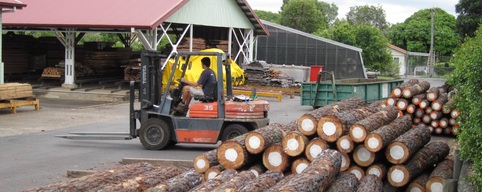

An interesting case occurred in the Polish port of Gdynia: a cargo of birch plywood was detained, which was initially registered as a shipment from Tunisia. However, the markings on the plywood in Cyrillic alphabet alerted the customs officers. This clearly indicates the Russian origin of the goods. The case set a precedent for a more thorough inspection, as such shipments violate European Union sanctions that prohibit imports of timber from Russia and Belarus.
Customs inspection confirmed the suspicions: the cargo was indeed not of Tunisian origin. The cargo was detained and placed in seven containers in order to conduct further checks and clarify all the circumstances of the case. A thorough investigation is under way to determine the entire chain of custody and to identify all persons involved in the operation.
The documentation fraud was part of a widespread scheme to circumvent the sanctions regime. This is confirmed by the results of independent investigations and the work of international observers. Most likely, the smugglers used all sorts of tricks to avoid unwanted attention from the authorities and successfully deliver Russian plywood to Europe.
Earthsight International has repeatedly reported on such cases of Russian timber being smuggled into Europe via third countries. Such practices are becoming more and more sophisticated and require increased control from customs services. Russians quite often use various schemes and workarounds to bypass the existing restrictions and still get to the European market.
There have been cases where smuggling operations have been carried out using forged documents and with the involvement of front companies in third countries. This makes it possible to conceal the true origin of the cargo and avoid responsibility for violating sanctions. Such schemes require particularly close attention from the authorities and enhanced inter-State cooperation to prevent their spread.
The detention of cargo in the port of Gdynia thus becomes an important signal to strengthen controls and improve anti-smuggling methods. Early detection and prevention of such incidents can have a significant impact on the success of such activities, reduce their scale and prevent further attempts to circumvent the sanctions regime.



